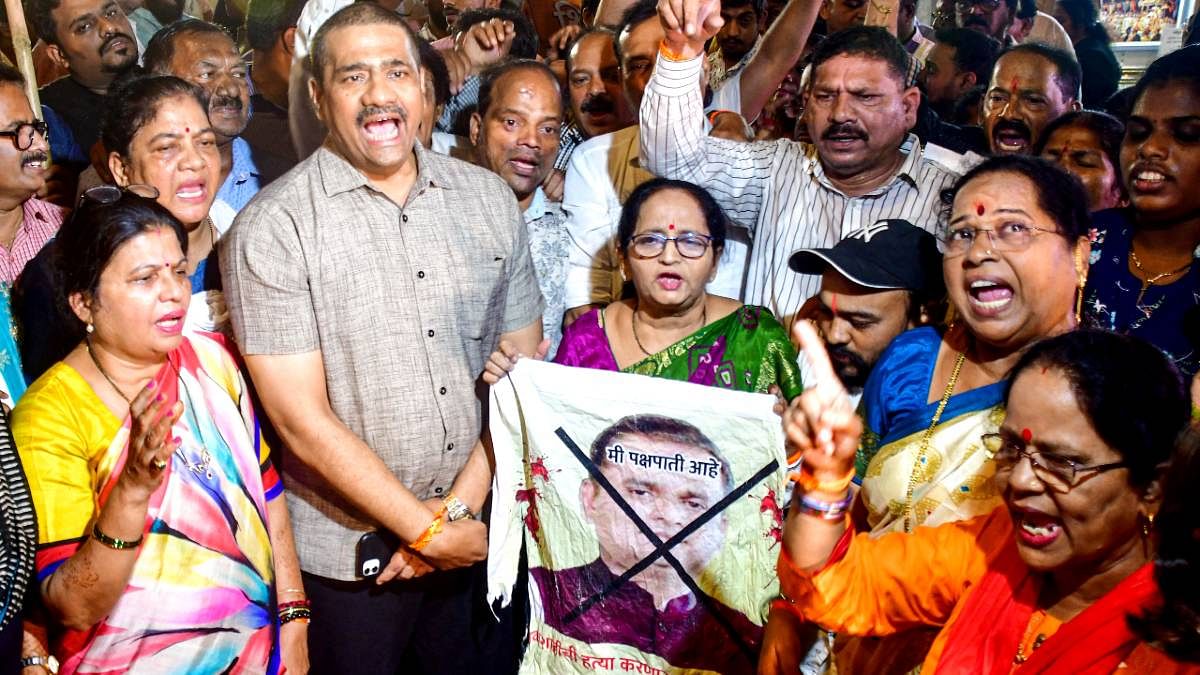From UPSC perspective, the following things are important :
Prelims level: 10th schedule
Mains level: relevant factors and jurisdictional boundaries in disqualification cases

Central Idea:
The article critiques the Speaker of the Maharashtra Assembly, Rahul Narwekar, for his flawed decision in handling the disqualification case of Shiv Sena Members of the Legislative Assembly (MLAs) led by Eknath Shinde. The author emphasizes the Speaker’s erroneous attempt to determine the real Shiv Sena faction and points out the jurisdictional issues and contradictions in the Speaker’s decision.
Key Highlights:
- The Speaker’s decision centered on whether the breakaway Shiv Sena MLAs, under Eknath Shinde’s leadership, voluntarily gave up their party membership by voting against the party whip, making them liable for disqualification under the anti-defection law.
- The article highlights the Speaker’s attempt to prevent disqualification of the Shinde group, presenting a nearly 1,200-page judgment that is deeply flawed.
- The Speaker erroneously tries to determine the real Shiv Sena faction, a decision beyond his jurisdiction, and quotes irrelevant Supreme Court directions.
Key Challenges:
- The Speaker’s decision raises questions about the misinterpretation of the Tenth Schedule and its provisions regarding defection and disqualification.
- Attempting to determine the real party faction goes against the clear jurisdiction outlined by the Supreme Court and the Election Commission of India.
- Contradictions in the Speaker’s decision, such as validating appointments by the Shinde group despite the Supreme Court’s findings, pose challenges to the integrity of the anti-defection law.
Key Terms:
- Anti-Defection Law: Provisions outlined in the Tenth Schedule of the Constitution that address defection by legislators and the resulting disqualification.
- Jurisdiction: The official power to make legal decisions and judgments.
Key Phrases:
- “Flawed decision in handling the disqualification case.”
- “Erroneous attempt to determine the real Shiv Sena faction.”
- “Nearly 1,200-page judgment valiantly tried to avoid disqualification.”
Key Quotes:
- “The consequence of this is disqualification.”
- “The Speaker’s decision is clearly without jurisdiction.”
- “Parliament did not consider paragraph 15 of the Symbols order as a relevant factor.”
Key Statements:
- “The question of which faction is the real Shiv Sena can only be decided by the Election Commission of India.”
- “The Speaker’s decision goes against the clear enunciation of law by the Supreme Court.”
Key Examples and References:
- The Subhash Desai judgment clarifies that the Shiv Sena led by Uddhav Thackeray is the original political party.
- Parliament did not consider paragraph 15 of the Symbols order as a relevant factor.
Key Facts and Data:
- The Tenth Schedule originally allowed legislators to avoid disqualification in case of a split or merger; however, the split provision was omitted in 2003.
- In Subhash Desai vs Principal Secretary, Governor of Maharashtra & Ors. (2023), the Supreme Court observes a split in the Shiv Sena party.
Critical Analysis:
The article critically analyzes the Speaker’s decision, pointing out flaws, contradictions, and the disregard for the clear jurisdiction outlined by the Supreme Court. It highlights the misinterpretation of the Tenth Schedule and its implications for anti-defection cases.
Way Forward:
- Emphasizes the need for adherence to the clear enunciation of law by the Supreme Court and the Election Commission.
- Urges a more precise understanding and application of the Tenth Schedule to prevent future misinterpretations.
- Advocates for a careful consideration of relevant factors and jurisdictional boundaries in disqualification cases to uphold the integrity of the anti-defection law.
Get an IAS/IPS ranker as your 1: 1 personal mentor for UPSC 2024
